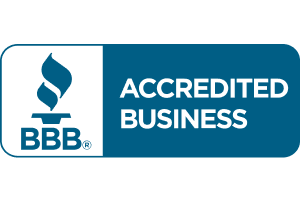Without Clear Title, The Lender Can’t Legally Foreclose On A Property
A few years ago, little if any challenge was raised on the issue of who had the right to foreclose on a property. The lender would simply show evidence that the borrower had defaulted on the mortgage and take possession of the property.
That kind of straightforward process can no longer be counted on in the wake of the housing crisis, which revealed years’ worth of sloppy documentation and title and document transfers by lenders and mortgage servicers.
Miami foreclosure lawyers know that without a clear title, the lender can’t legally foreclose on a property. In lien-theory states like Florida, banks must prove ownership of the mortgage note and/or servicing rights.
In fact, a recent foreclosure lawsuit made headlines when it presented documentation of systematic documentation fabrication by Wells Fargo in cases where a clear title couldn’t be found.
Then even more recently in a foreclosure case out of Montana, the banks wrangled with one another about which entity had rights to the title. In that case, JAS, Inc. v. Eisele, one bank issued a quiet title action against other lenders and mortgage servicers, all of whom staked a claim on one foreclosed property.
It started in May 2011, when IndyMac Bank foreclosed on a residential property in Billings. A sale was scheduled, but then later canceled and rescheduled, though a second affidavit of selling wasn’t recorded on or before the date of the actual sale, which was conducted in November 2011.
JAS Inc., an investment firm specializing in buying and flipping homes, purchased the property at that time.
Soon after, there were indications that the title may not have been clear. Bank of America was requesting winterization and structural assessments on the property. In response, JAS initiated a quiet title action in county court. This is an action taken in order to establish an individual or company’s right to ownership of real property against other claimants. Several others were listed, including Countrywide Home Loans and Mortgage Electronic Registration Systems. Bank of America, which had bought Countrywide back in 2008, was not listed anywhere in the proceedings.
A final judgment was later issued to JAS, granting property rights.
However, soon after, Countrywide and MERS requested to have the judgments against them set aside. Bank of America intervened on behalf of Countrywide and also sought to have the judgment against its subsidiary set aside. The district court held a hearing and granted those motions. JAS appealed. The Montana Supreme Court, however, affirmed.
Bank of America had rights to the properly that it did not have the opportunity to adequately defend, as it was not named as a defendant in the quiet title process, the court found. As an actual party of interest, the state high court found that the district court’s decision to set aside the default judgment was not improper.
The bottom line for homeowners is that foreclosure cases can be incredibly complex – more so than they might seem on the surface. This case serves not only as a cautionary tale for those who are looking at purchasing a foreclosed home, but also for those who are entering foreclosure.
A lender that is unable to prove standing will not be able to foreclose on the property. An experienced foreclosure defense lawyer can help borrowers explore the options based on the individual facts of the case.
For more information on fighting a Miami foreclosure, contact The Neustein Law Group PA at (305) 531-2525.







